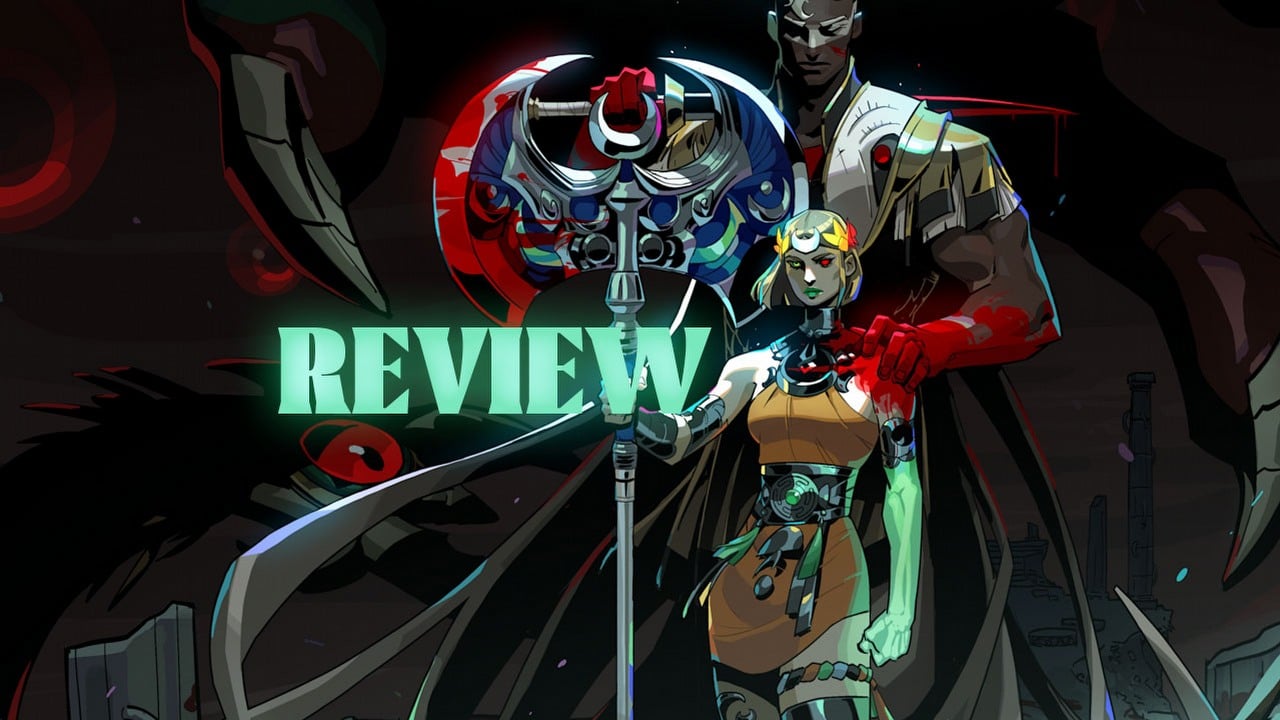
The original Hades focused on Zagreus attempting to earn his father’s approval through self-improvement. The new game, however, centers on a much larger goal: saving not just her family, but the whole world. This increased scope should be especially exciting for players who weren’t quite challenged enough by the first game. Although the protagonist, Melinoe-Zagreus’s sister-is a goddess and therefore immortal, the sense of urgency created by the limited time and the deceptively calm but intense conversations really builds the suspense.
Myths and Legends
After escaping from his Tartarus prison, Chronos abducted the inhabitants of Hades – including Zagreus’ family – and held the mighty ruler of the underworld captive. But some figures resisted the Titan’s control, such as Hekate, who became the guardian of young Melinoe.
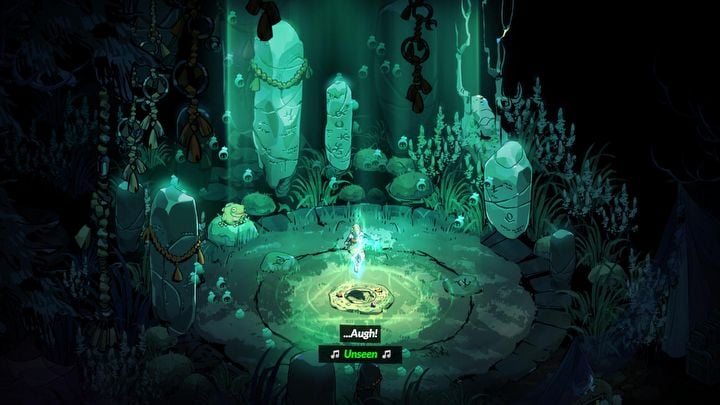
Hades 2 was carefully crafted with a deep respect for the original myths. The developers prioritized a story that makes sense within its own world, and they really focused on creating characters you’ll genuinely care about. Personally, I much prefer the somewhat grumpy but ultimately kind-hearted Hades from Supergiant’s games to the more vengeful version of the god from traditional mythology, the one who abducts the innocent Persephone.
Brilliant NPCs
In Hades 2, you’ll meet a lot of characters who aren’t playable. Some, such as Hypnos, the god of sleep, were already in the original Hades, but most are new to the series. Take Hecate, for instance – she’s the adoptive mother of Melinoe. After Hades and Persephone disappeared, she raised the young goddess, preparing her to become a powerful warrior. She’s a very well-developed supporting character, balancing a caring side with the strictness of a teacher. It makes sense she’s the first boss you face!
Odysseus stands out because his pride in his accomplishments clashes with a feeling of awkwardness around the direct Melinoe. And then we have Moros, a messenger from the Fates, with whom he often disagrees. It’s impressive how well Supergiant Games combined the style of a modern anime character with ancient Greek mythology. Dora is also great – she’s my favorite! She’s similar to Dusa in the first game, but maybe because this sequel isn’t as focused on comedy, her over-the-top personality is actually really amusing.
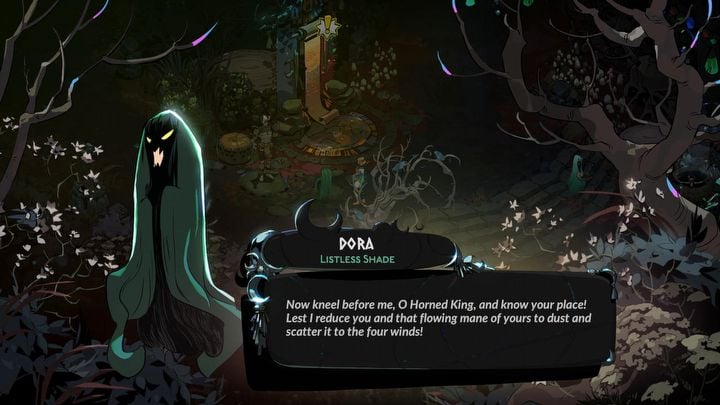
Eris, the goddess of discord, was particularly good at bothering the main character, and she deliberately messed up Hades just to annoy the orderly Melinoe. Thankfully, her conversations are actually quite humorous, and it’s a shame she wasn’t involved more in the story. It was also great that the writers portrayed Artemis, the goddess of the hunt, as Melinoe’s equal – at least when it comes to personality and how they act. She even pitches in during fights sometimes. You’ll definitely enjoy the familiars, which are unique both in how they function in the game and in the story. They’re helpful in battles and are really adorable. My only regret is that I didn’t get to unlock them sooner.
The core story can be completed in around 20 hours for skilled players who are moving quickly, and potentially even faster. This assumes we don’t use a narrative or ‘god’ mode. To keep the playtime under twenty or thirty hours, we’ll need to significantly reduce the amount of dialogue. If you want to complete most tasks and the main side quests at a reasonable pace, it will take around 70 hours. To fully master the game, including learning boss patterns and enemy waves, expect to spend approximately 100 hours. That’s a considerable length for a game that doesn’t fit neatly into the RPG or action genres.
Musician. Genius. Oscar?
The soundtrack is exceptional and deserves special mention. If video games had Academy Awards, Darren Korb would certainly be a contender this year, alongside Lorien Testard (Clair Obscur: Expedition 33). The music is incredibly diverse, perfectly reflecting the game’s serious story, exciting combat, and more relaxed side quests. You can really enjoy listening to some tracks while hanging out with Artemis, and others vividly depict the intense battles against Scylla and her crew, using music as a powerful tool. Fans of the first game’s music will not be let down-the sequel’s main theme will be instantly recognizable even to those who don’t usually pay close attention to music. However, the soundtrack offers so much more than just familiar sounds-it provides nearly 4 hours of listening pleasure. It’s impossible to find fault with this aspect of the game; the soundtrack is truly captivating and creates an unforgettable atmosphere.
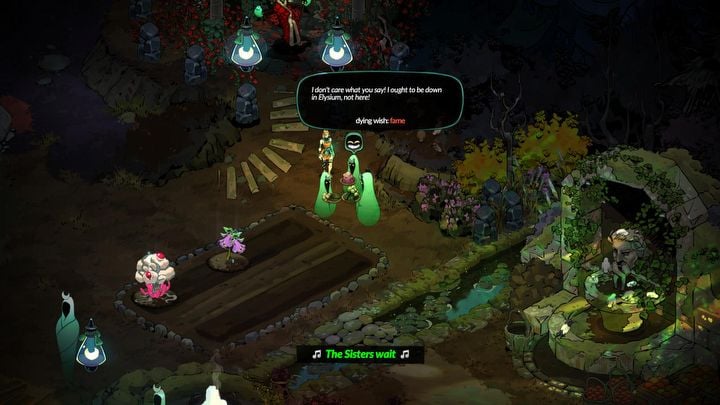
A roguelike with elements of a visual novel and RPG
I completely overlooked the core of the game – the fighting! After all, Hades 2 is fundamentally a roguelike. It blends in story elements like a visual novel and role-playing aspects, but at its heart, it’s still a roguelike. The game features a lot of action, and it’s engaging enough that players won’t mind repeatedly battling to improve their skills. There are tons of different ways to play, and each one feels unique. I personally had the most fun using daggers, which is surprising since I usually prefer heavier weapons in games like this.
During each fight, you have several options: a standard attack, a special attack, dodging, using a spell, or charming your opponent. The regular attack’s speed and power depend on the weapon you’re using. You can combine these actions into chains, and each one will play out slightly differently. The special attack is also influenced by your weapon, though not in a straightforward way. For example, even when using an axe, you’re still fighting up close, but it adds unique effects. And if you’re using daggers, you can throw them to attack enemies at a distance.
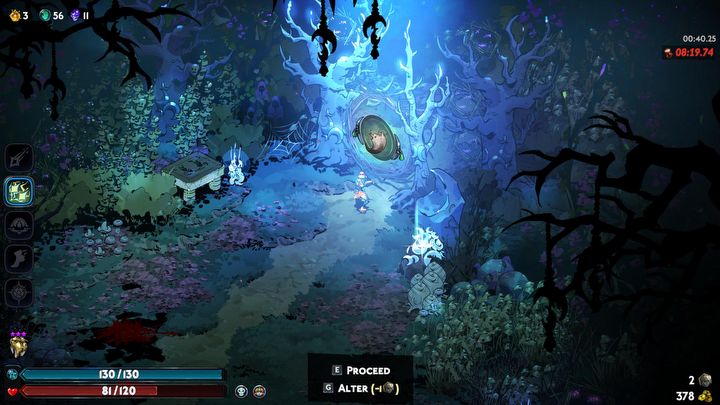
Spells are most effective when used alongside regular attacks or when we benefit from helpful divine gifts. I found myself using them slightly less often than attacks, but that really depends on how each player builds their character and what they prefer. Charms are stronger spells, but they require a short time to build up power. Using them strategically can frequently change the outcome of a fight, even when things look bleak. The dash ability feels a little different from Zagreus’s dodge in the previous game, but it remains crucial even in quick encounters. Importantly, the developers don’t simply reward players for using it repeatedly, which is a good design choice.
The controls are easy to use and comfortable, even when playing with a keyboard. Supergiant did a great job with the technical aspects – the menu is full of helpful settings without feeling messy. The interface is modern and inviting. I just wished there were a few more options to tone down the roguelike features of the game.
Battles, especially when you first start, don’t usually take long – just a few minutes. Eventually, your character will ‘die’… though technically, you just lose all your HP. That’s because Melinoe is an immortal goddess, and you’ll respawn at the Crossroads. After each attempt, you can interact with or give gifts to other characters once, improve your abilities, and then try again. This cycle is engaging, at least for a while.
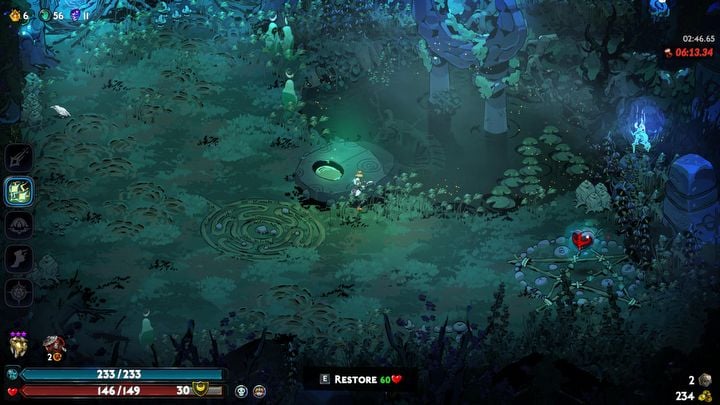
A key feature of the game is boons, which give you stat boosts (they’re designed to keep combat interesting, so they often only work with specific attacks, spells, actions, or situations). We receive these boons from the gods – primarily the major Olympian deities – who are essentially our family. Before you get a boon, you’ll have a brief conversation with the god, which can sometimes be important to the overall story, so pay attention! You’ll always be offered three different bonuses to choose from. Initially, you’ll mostly find common boons, with rarer ones appearing less frequently. As you progress, you’ll start unlocking epic and legendary boons.
- new physics for weapons, spells, and dodges;
- many side activities;
- well-written dialogues;
- a main character you can’t help but like;
- high difficulty level…;
- … which gradually becomes lower, somewhat tailoring the gameplay to the player’s needs;
- main ending;
- beautiful graphics;
- story;
- awesome soundtrack;
- optimization.
CONS:
- occasional bugs related to the cause-and-effect sequence in the hell mode;
- an ending that leaves the player slightly unsatisfied.
Crossroads and Arcana cards
At the central area, called the Crossroads, you can find Arcana (powerful cards that give helpful combat boosts), create Incantations (which mainly affect the story, but have other uses too), trade items, grow a garden (using seeds to improve your character), and see if you’ve completed the prophecies (a crucial task for both the story and gameplay in Hades 2). You can also select equipment, upgrade weapon Aspects, take on Chaos Trials (which involve completing quick objectives during a run), train your skills, form Covenants, and increase the Fear level (making the game more challenging). There’s even more to do! On top of all that, you should also focus on building relationships with the other characters.
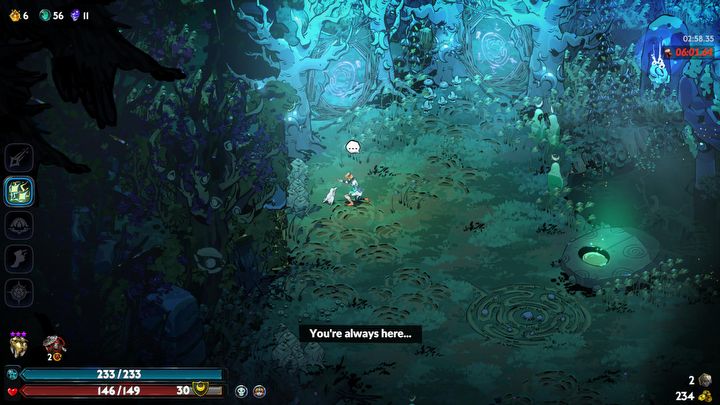
There are two main areas where battles take place (though the Chaos Trials could be considered a third): one is in hell, where you progress deeper into the underworld, and the other is on the surface, where you work to defeat Chronos. These areas offer very different experiences – you’ll encounter unique enemies, pursue different objectives, face distinct bosses, and find that certain character builds are more effective in each. To fully understand the game’s story, you’ll need to advance on both of these fronts.
Good performance and colors
The most crucial thing is how stable the game is. I didn’t experience any crashes or gameplay bugs. The optimization team really delivered – Hades 2 runs incredibly well and doesn’t use a lot of memory, even on older laptops (I tested it on mine which is a few years old). And on more powerful computers, it looks fantastic in high resolution, with beautiful details and lively colors.
One of the best aspects of this game is its color scheme. Each area feels special and different, but still maintains the bright and recognizable style of the series. The gods are beautifully designed and visually striking, inspiring you to create your own artwork. While drawing them might be more challenging than defeating Chronos, you can enjoy the stunning visuals through the game’s fantastic concept art.
Ending with a sense of incompleteness, but is it not the end?
I’m a bit let down by how the main story concluded. It wasn’t a total letdown, but it felt incomplete. Maybe the developers will expand on it with a future update or downloadable content. However, Supergiant Games doesn’t typically release DLC, so it’s uncertain if we’ll get more story content.
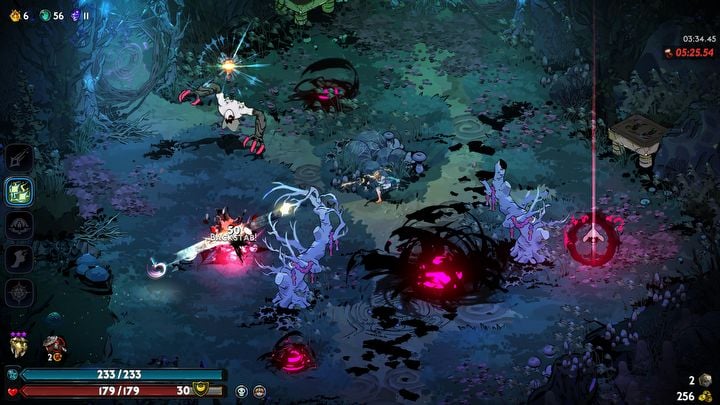
Let’s be realistic for a moment, and point out a potential issue. After a certain point, the repetitive conflicts common in this type of game can become a little tiresome. I understand it’s a roguelike, and this was present in the original game, but Supergiant Games could definitely find a way to balance staying true to the genre with making the game more enjoyable. For example, could they make the rooms smaller at the beginning of a run as you move through different areas? Or perhaps Supergiant Games will add an option in a future update to make the early parts of a run shorter? That would be a welcome change.
I have somewhat conflicting thoughts about how the game is set up. Although you can choose to focus on melee combat and skip long-range weapons, doing so causes you to miss key parts of the story. This pushed me to try out all the different combat styles. It wasn’t a major issue, but considering how enjoyable most of the game is, this feels like a strange design choice. It felt a bit off, honestly.
Worthy rival to the year’s greatest titles
Ultimately, Hades 2 is a remarkably successful follow-up to the beloved original game. Both longtime fans and newcomers to Supergiant games will thoroughly enjoy it. While it remains a roguelike, complete with the genre’s typical strengths and weaknesses, the superb writing and captivating music make it a worthwhile experience. The graphics are beautifully detailed, and memorable characters like Dora and Artemis will stay with you even after you finish playing. Hades 2 isn’t flawless, but it’s poised to compete with Clair Obscur, the upcoming Silent Hill, and Silksong.
Read More
- All Itzaland Animal Locations in Infinity Nikki
- Exclusive: First Look At PAW Patrol: The Dino Movie Toys
- All Golden Ball Locations in Yakuza Kiwami 3 & Dark Ties
- James Gandolfini’s Top 10 Tony Soprano Performances On The Sopranos
- Silver Rate Forecast
- Ethereum’s Volatility Storm: When Whales Fart, Markets Tremble 🌩️💸
- 7 Lord of the Rings Scenes That Prove Fantasy Hasn’t Been This Good in 20 Years
- Gold Rate Forecast
- Elder Scrolls 6 Has to Overcome an RPG Problem That Bethesda Has Made With Recent Games
- Super Animal Royale: All Mole Transportation Network Locations Guide
2025-10-01 13:05